Here’s how to set boundaries with your emotionally abusive husband.
One of the first steps is to discover which of the 19 different emotional abuse tactics he may be using. To do that, take our free emotional abuse quiz.
Becoming Free From Emotional Abuse
Victims can use emotional safety strategies with their emotionally abusive husband. To learn these strategies, enroll in the Betrayal Trauma Recovery Living Free Workshop.
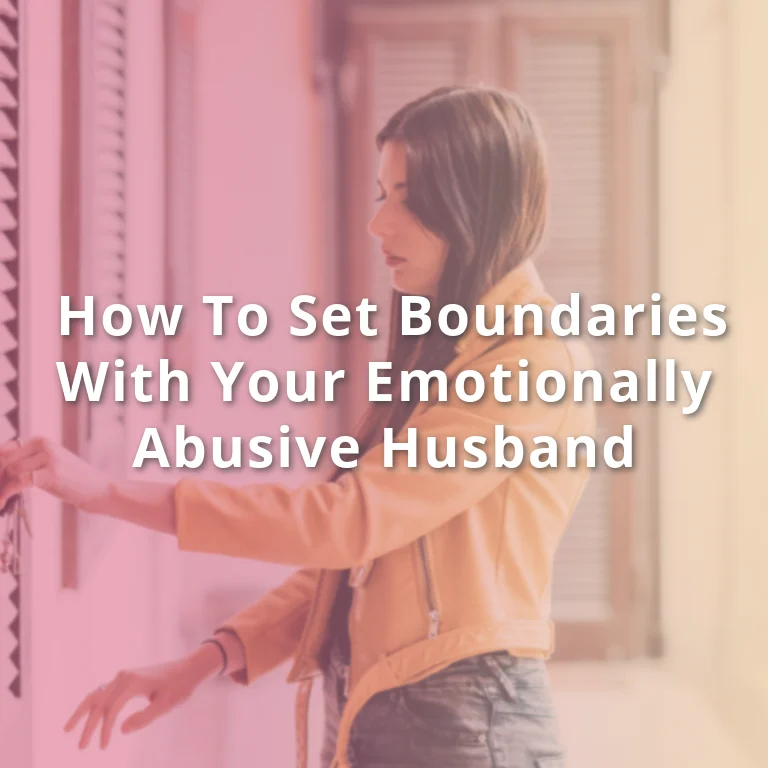
Transcript: How To Set Boundaries With Your Emotionally Abusive Husband
Anne: Many of you are still being gaslit or emotionally abused in your home, the situation is very hard. My prayers are going out to you. During this time, and always Betrayal Trauma Recovery Group Sessions are up and running. We have multiple sessions a day. Unlimited live sessions per month. Our coaches are amazing. Attending Betrayal Trauma Recovery Group Sessions, you can get to know each of our coaches and see who you relate with.
If group works for you, stay as long as you want. If you feel like you could benefit from individual sessions, see which coach you relate with the best. Check out the session schedule, and you can attend the next session. Which is usually within a few hours. We welcome you, we’re here. And we’re live, we’re honored to have you. We love it when women can feel our support and love face to face online.
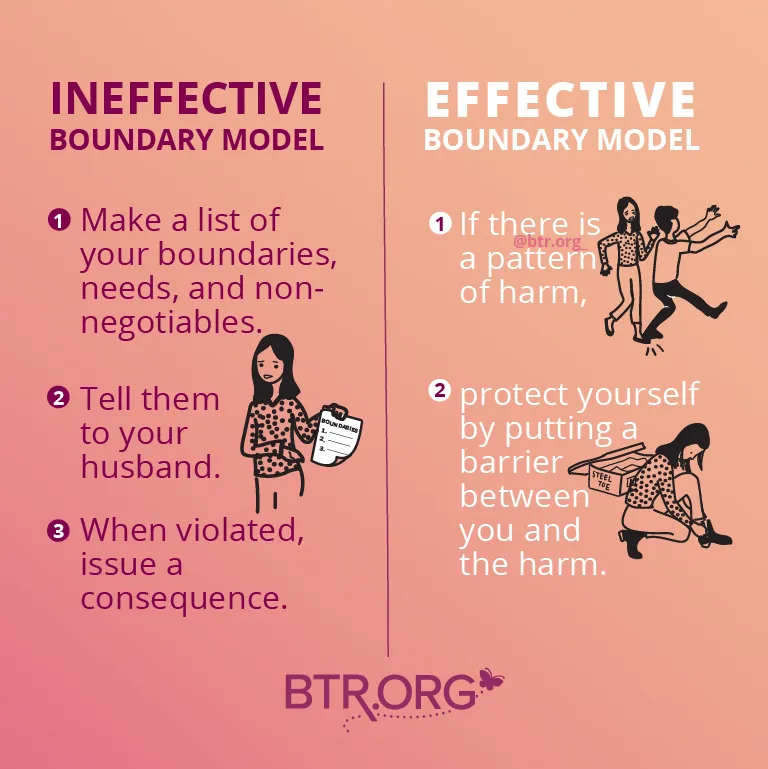
Today I’m going to talk about boundaries with your emotionally abusive husband. Because so many women wonder, how do I set boundaries? The purpose of a boundary is to protect you from harm. If the boundary does not protect you from harm. It’s not a good boundary. Or not a boundary at all.
The reason why so many women are confused about boundaries is because traditionally, therapists and other experts set up boundaries this way. You state what you will or will not accept. So you’ll say something like, I will not accept pornography in my home or I will not be lied to. And that is your “boundary.”
Problems with Traditional Boundary Setting
Anne: And then if the boundaries with your husband are crossed, you have to enforce your boundary. That pattern of boundary and then a violation, and then you have to enforce your boundary or then you have to hold your boundary, is problematic. That is what so many therapists or coaches teach, and it is not working for a lot of women. If that model works for you, shine on, right? Keep using it.
But if you’ve been taught that model and you’re like, this is hard. I “set the boundary.” I said, I won’t be lied to, or I won’t be treated this way, or I will not allow this in my house. And then it gets violated. Then you’re like, what do I do now?
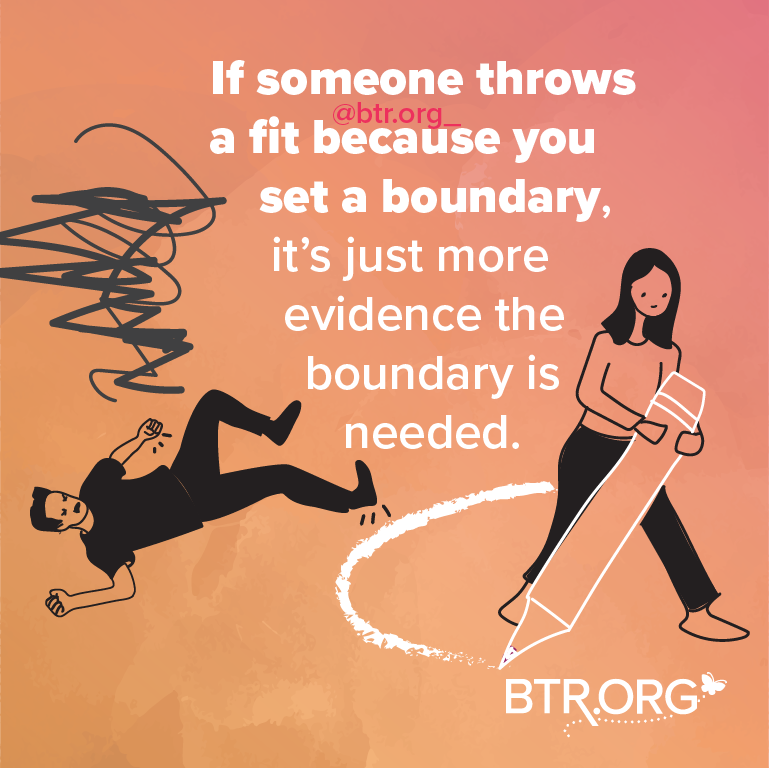
If you’re in that boat, I want to teach you a new model for boundaries that is way more practical and makes a lot more sense. So instead of thinking of a boundary as something that you will not tolerate, I want you to think of a boundary as the actual physical or mental thing that protects you from the harm. So if you’re not protected from emotional abuse from your husband, think in your mind, I don’t have a boundary yet.
Because the whole point is to protect you from harm. If you’re not protected, then what? Statements like, you cannot treat me this way, or I will not allow this in my home are just statements. They cannot keep you safe. With a coach or therapist, if you’re doing “boundary work” and making a list of things you will or won’t tolerate, you’re not making a list of boundaries.
A Better Model For Boundaries
Anne: What you are making a list of is safety issues. As you make that safety list, you can write down, I don’t feel safe with someone who lies to me. I don’t feel safe with someone who grooms me through being kind to me when they want to have sex. That is not a list of boundaries. That is a list of safety issues. What matters is that you understand what the safety issues are. You can state a safety issue, but you cannot state a boundary.
Boundaries with your abusive husband are actions. It could just be a mental action, you close your eyes. For example, blocking someone on your phone actually stops them from calling you, texting you or harassing you. Can they call from another number or a blocked number? Yes, they can. But if you make a boundary that you will never answer a number that you don’t recognize, they’ll have to leave a message.
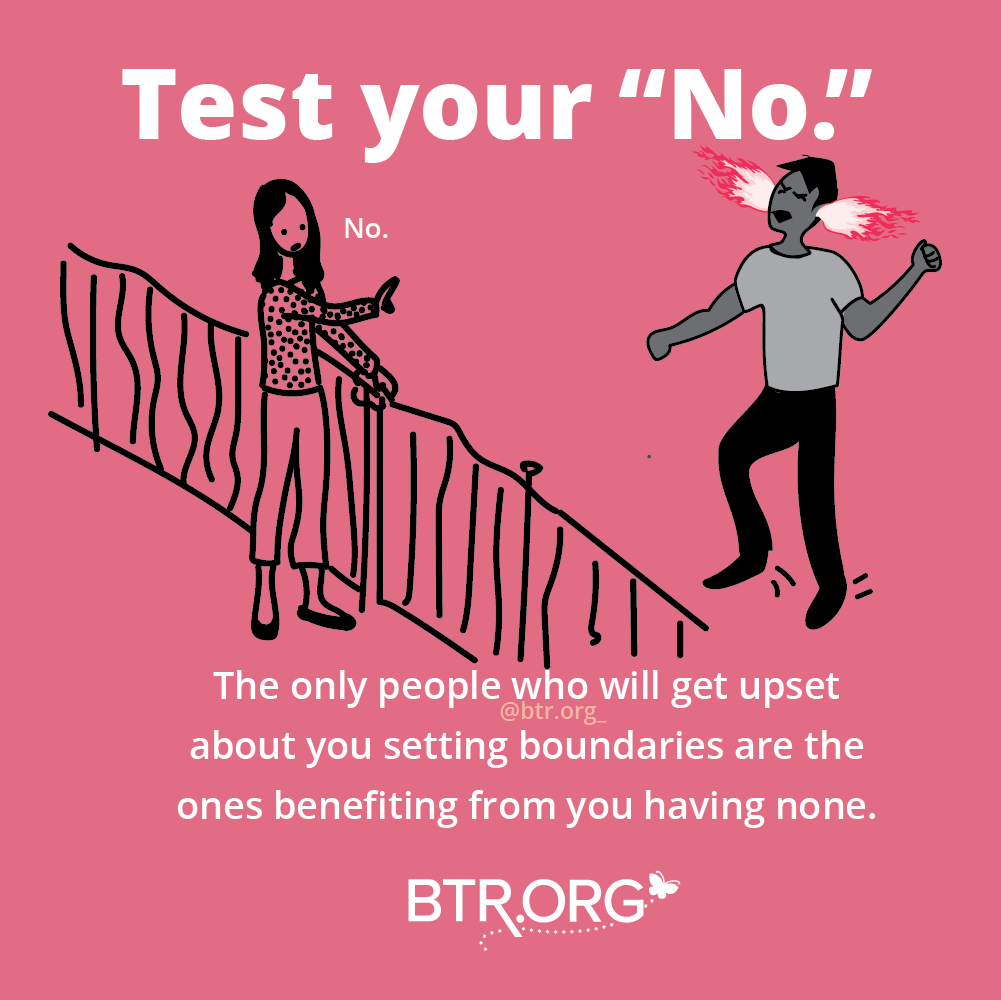
And are they going to leave a verbally abusive message? They might. And then you can block that number. And you can just continue to block numbers. If he continues to lie and manipulate, saying, I won’t talk to him, doesn’t keep you safe. Because every conversation he can lie and manipulate you. Blocking him on your phone, blocking his email, or deleting your social media accounts, that’s an actual boundary. Because it literally protects you from the harm.
Creating More Safety Through Evolving Boundaries
Anne: That seems extreme. You could go for a smaller boundary, like every time he says something abusive, you walk out of the room, let’s say. Or every time he stonewalls, or just looks at his phone and refuses to talk to you, you get up and walk out. Does that protect you from harm? Then you can assess, okay, I set these boundaries with my emotionally abusive husband, which means you actually took action.
So let’s say he’s verbally harassing you in the car, and you turn and look out the window and he stops talking. Did that protect you from harm? The answer to that might be, yeah, it did. He stopped in that moment, great. You can say, okay, that’s a good boundary. I’m going to continue to do that. And as they escalate their abuse, you can escalate your boundaries.
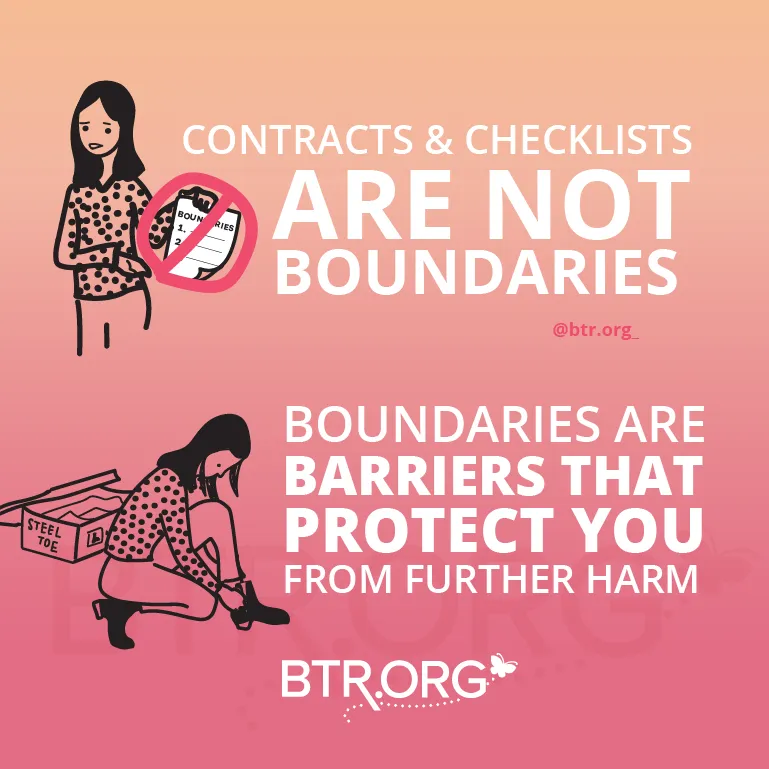
People who don’t know anything about abuse will tell you to tell the perpetrator about the boundary. You actually don’t have to tell your perpetrator at all. This thing where you have to tell the perpetrator, my boundary is no exploitative material in the house. And if you do it in the house, I will ask you to move out. I think that’s completely backwards. If they use it in your house, you don’t have to tell them upfront or decide beforehand. If it happens, you don’t have to give them notice.
Functioning, responsible, mature adults don’t need to be told. If you lie to me, I feel unsafe, so I’ll set a boundary. A functioning adult and mature person would know. The things we want them to do, be honest, not manipulate, not look at exploitative material, not cheat. So then a woman wouldn’t have to figure out if they should stay married after infidelity.
Boundaries Don’t Need An Explanation
Anne: These are basic skills that adults should know. It’s not your responsibility to explain it. If someone tries to make you feel like it is, that’s simply manipulation. To try and get you to communicate with someone who’s not safe enough to communicate with. You can take action and create a barrier to keep you safe, whether he understands it or not.
You don’t have to tell him what it’s for, you don’t have to explain it. So you can be safe. And if he gets it, he gets it. If he doesn’t, he doesn’t. It’s not your responsibility to try and explain it to him.
I read the scriptures this morning, where it talks about the end times. It said, “For the time speedily cometh, that the Lord God shall cause a great division among the people, and the wicked he will destroy and he will spare his people. Even if it so be that he must destroy the wicked by fire and righteousness shall be the girdle of his loins and faithfulness, the girdle of his reins.”
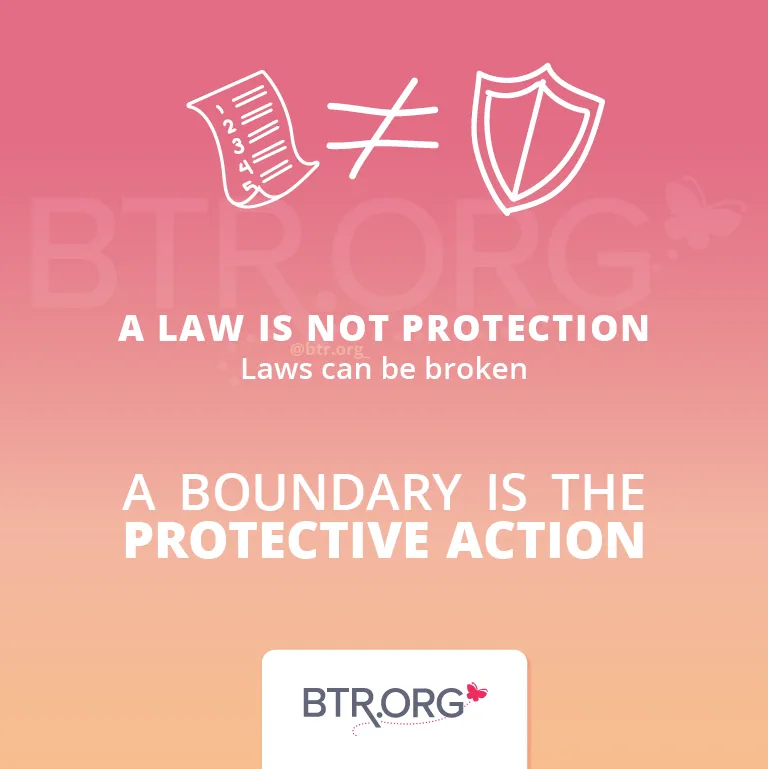
So this division, where the unhealthy are separated from the healthy, is prophesied throughout the scriptures. I did a podcast about boundaries and New Testament scriptures that bring up boundaries. So if you’re a woman of faith and think, well, wait a minute. This lack of communication or separation feels bad. My church doesn’t teach this, isn’t true. There’s evidence throughout the scriptures of the last days that there will be a great division between the wicked and the righteous.
Separating Yourself From Harm
Anne: If you’re seeing wickedness or unhealthiness in your own home. And you’re realizing, I need to separate myself from this. It’s like quarantine. If you have a virus, it’s a public health issue, and you need to stay separated from people who don’t. So you don’t get them sick. Separating yourself from the harm is important, otherwise, you’re going to be harmed. There’s no other way to protect yourself other than separating yourself from it.
So, setting boundaries with your husband is a protective barrier. If you’re in a discussion and they’re not speaking to you with respect, the boundary would actually be walking out of the room. Because if you keep engaging with someone who is harming you, even if you keep telling them, please don’t do this, please stop. But they keep doing it, and you don’t leave, you’ll continue to be harmed. What are you going to do to feel safe in that event?
Women Share Their Experience Setting Boundaries With Their Emotionally Abusive Husband
Anne: And she said, “Well, every time I see him, I’m so triggered that I feel unsafe, so my boundary is that I’m gonna stay with my mom.”
Here’s another one from our community members. She just found out last month that her husband watched exploitative material almost daily or every other day. Of course, all he could say was he was sorry. And she said, “I know he’s sorry, but how does that change anything?” And so my response was, what boundaries would help you feel safe in your own home? Would you feel safer if you slept in another room? Like what actions can you take to protect yourself?
Another example, he lied to you, and then you don’t talk to him. Because if he talks to you, he lies to you. The only way to protect yourself from the injuries his lies cause is not to talk to him anymore. There’s no other way to do it. There’s no way to get him to stop lying. The only thing you can do is separate yourself from someone who is lying.
So to recap, a boundary is a protective barrier. I want to hear your comments and questions. I want to hear your thoughts. You can also comment on this podcast episode below. I always respond to those comments there.




I just wanna share what I’ve been through. I know what it’s like to feel so stuck and vulnerable with your abuser because of the kids. I’ve been there, and honestly, I still feel it sometimes. There’s this constant fear, like, you just know he’s not doing what’s best for the kids, even though he acts like he is.
For me, BTR was such a big deal. They helped me clear my head—I realized I wasn’t crazy for feeling manipulated, and I didn’t have to keep letting him control everything. They gave me tools I didn’t even know I needed, like how to set boundaries. I used to try to stand up to him, but it always ended in me feeling guilty or second-guessing myself. BTR helped me figure out that boundaries weren’t about trying to control him—they were about protecting me and my kids. Once I started doing that, I felt stronger, even though it was hard as hell.
My ex always acts like he’s all about the kids, but his actions just never match that.
With BTR’s help I’m figuring it out. I feel more grounded now.